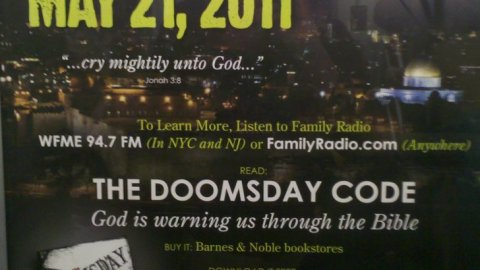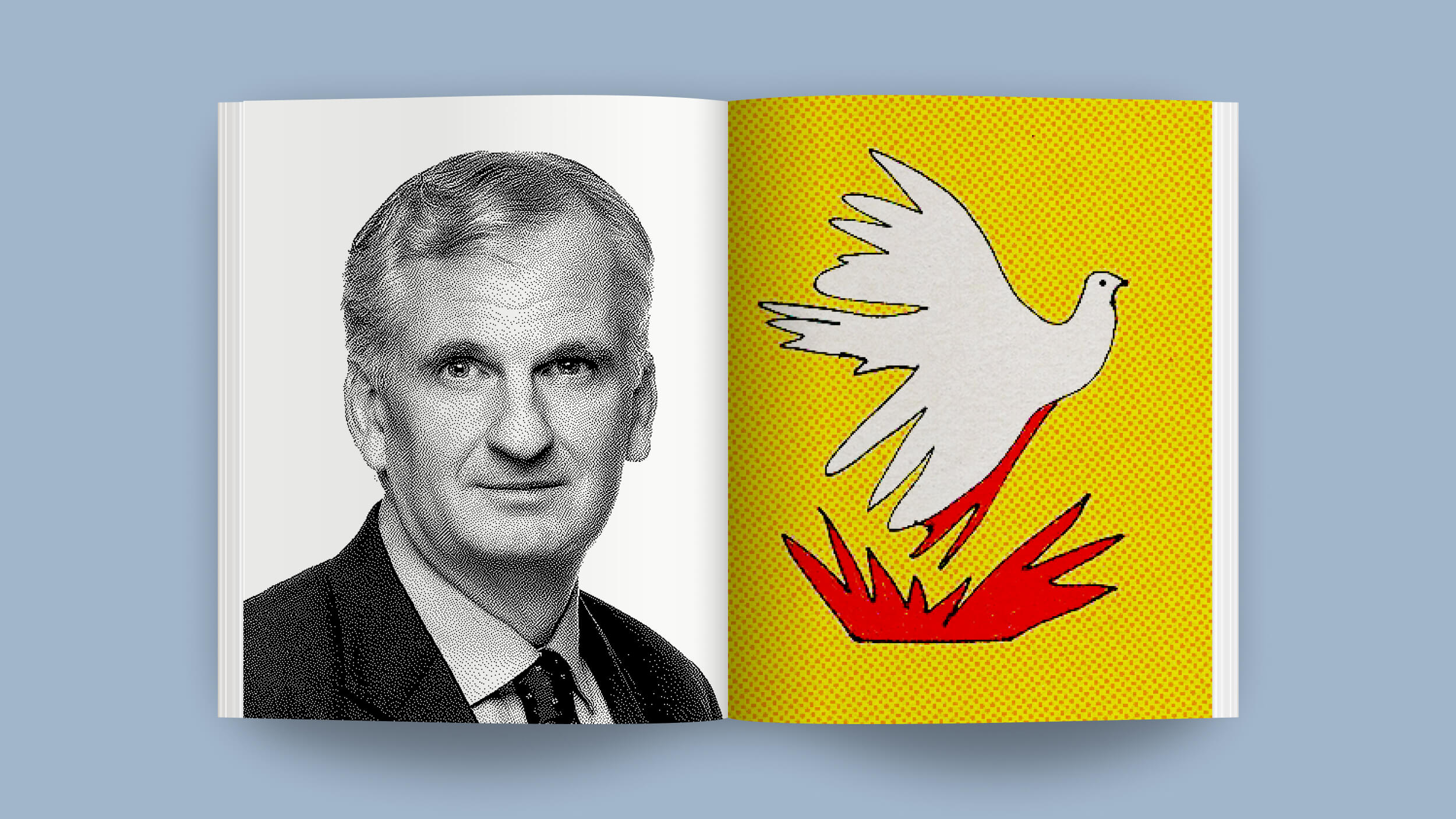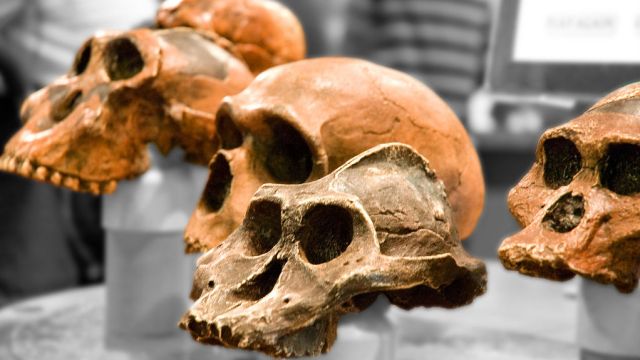The Venoms of Armageddon Evangelism and Their Antidotes

Guest post by Samantha Eliza Benten
Back in May (when the world ended… remember?), the blighted hopes of those looking forward to a worldwide blight reminded me of the “disappointment” experienced by the Millerites over 150 years ago. In a book I was originally assigned for a college class (Eyewitness to America: 500 Years of America in the Words of Those Who Saw It Happen), said nonfateful day was recorded in a telling primary document. I’m including it here, though it’s longer than most quotations, due to its fascinating details of this uniquely human drama.
“In 1844, followers of William Miller, the founder of the Adventist movement in America, gathered together across the eastern United States to await the end of the world. Below is an account of a group of Philadelphia Millerites and their anticipation of this event.
“Fire was to destroy the earth in October, 1844. The excitement in Philadelphia had been growing for two or more years, and by the summer of 1844 it was indescribable. The Millerite Church was on Julianna Street, between Wood and Callowhill, and there Miller’s followers met night and day, and watched the stars and sun, and prayed and warned the unrepentant that the ‘Day of Judgment’ was at hand.
“Many of them began to sell their houses at prices which were merely nominal. Others gave away their personal effects, shut up their business, or vacated their houses. On a store on Fifth Street, above Chestnut, was a placard which read thus:
“THIS SHOP IS CLOSED IN HONOR OF THE KING OF KINGS WHO WILL APPEAR ABOUT THE 20TH OF OCTOBER. GET READY FRIENDS TO CROWN HIM LORD OF ALL.
“People laboring under the excitement went mad.
“On one occasion all the windows of a meeting-house were surrounded at night by a crowd of young fellows, and at a given signal the darkness and gloom were made lurid by flaming torches, and the air resounded with the roar of firecrackers. The Saints inside went wild with terror, for they thought the fiery whirlwind was come.
“The Sunday before the final day was an eventful one. The Julianna Street Chapel was crowded. A mob of unbelievers on the pavements stoned the windows and hooted at the worshippers. The Police of Northern Liberties, and Spring Garden, and a sheriff’s posse, headed by Morton McMichael, were on hand to quell the threatened disturbance. The members of the congregation repaired to their homes, and after, in many cases, leaving their doors and windows open, and giving away their furniture, set out for the suburban districts. A large number went over into New Jersey, but their chief party assembled in Isaac Yocomb’s field on the Darby Road, three miles and a half from the Market Street bridge. While here a furious hurricane strengthened the faith of the Millerites and struck awful terror to the souls of the timid. It swept over the city, destroying shipping and demolishing houses…
“The crowd at Darby was gathered in two tents, but so great was it that the children for two days were obliged to run about the fields, exposed to the pelting of a pitiless storm, and crying for their parents. The parents, clad in their white ascension robes, were almost exhausted for want of food, slept on the cold wet ground, and prayed and hymned and groaned incessantly.
“At midnight on the 22nd, the Bridegroom was to come, and a rain of fire was to descend from the heavens, and the Saints were to be gathered up in a whirlwind. There they stood on that black, tempestuous October night, shivering with cold and fear – their faces upturned, and every eye strained to catch a beam of the awful light piercing the clouds. The morning broke, and with it came the end of the delusion. The assemblage dispersed in despair, and slunk away silently and downcast to their houses.”
What bothers me most about the above is how desperately the believers hoped for the world’s end and the reaction of disappointment they apparently felt at the lack of doom being struck upon their fellow human beings. After musing about this awhile, I have a few observations I’d like to make about impassioned doomsday evangelists:
Looking forward to the end of the world requires a divorce not only from reality, but from the awe that our infinitesimal place within it inspires.
The history of science, and especially of astronomy, is a lesson in humility. Human thought began with us at the center of everything, dramatically demonstrated by the Ptolemaic system. Ptolemy believed the Earth was the center of the universe. This made sense at the time given how the sun, moon, and stars appear to rotate around us, and it fit in nicely with the idea many religions had that the entire world (especially the local culture and people) was created with humanity in mind. Galileo, inspired by Copernicus and basing his beliefs on his own observations, was to prove this theory wrong. This upset the cultural and religious standards of the day not only because it proved them wrong, but also because it meant we weren’t the universe’s center. That is a seismic ideological shift for all of humanity to make. We were, as a species, like children who suddenly realized that our parents weren’t always focused exclusively on us – hence, we threw an anti-science tantrum.
The theory of evolution is likewise seen as a threat in part because it contradicts scripture and in part because it moves us farther to the side of reality’s center. Instead of seeing humanity as the most important beings in a world created explicitly for us, evolution challenges us to reconcile our collective egos with the countless living beings here long before us. It’s scary because it implies that there might be living beings here long after us as well. Yet some people insist on regarding humanity as the beginning, center, and end of all significance. That, in my opinion, is a disturbed and disturbing point of view.
But the history of human self-centeredness goes far beyond that. We always seem to gravitate to our own social cliques and care only about them — whether it’s our own family, race, religious group, football team, country, political party, social organization, or generation. We’re forever focusing on the biggest group that’s small enough for us to feel important within. We’re forever forgetting the rest of the universe. It’s for this reason that I LOVE showing people pictures of the Hubble Deep Field, AFTER showing them a series of pictures of our solar system, nebulae, and galaxies. It’s humbling in the grandest sense to put ourselves in perspective this way. If you’re not familiar with the Hubble Deep Field images, I recommend watching this short YouTube video about them: The Hubble Deep Field: The Most Important Image Ever Taken.
Whenever I hear someone proclaiming that the end of the world is coming, I want to hand them a copy of the Hubble Ultra Deep Field, with its millions of galaxies spanning billions of light years. The behavior of humanity determines the fate of everything? Really? Looking at what Hubble saw, I find that sublimely improbable.
Looking forward to the end of the world means severely devaluing life.
I’m a bit mystified by why anyone, even one who believes that an end times is imminent, should be eager for all life to end. I realize there are people who’ve experienced hell on Earth, but I seldom get the feeling that groups preaching the world’s end are dominated by the terminally depressed. As vocal as they are about their dismal view of life in general, I don’t recall many declaring that their own lives have been exercises in anguish. Now yes, there’s a lot that’s wrong with this world, but there’s a lot that’s good in it too. To deny this is to deny reality; even if you’ve led a wholly positive or wholly negative existence, it’s easy to find people who’ve had other experiences. To reject this world as corrupt is to reject the intricacies that make it a most fascinating, meaningful challenge. Life is meant to be complex: when we give up the notion that there will be a quick, simple solution to the problems of life we can actually work on them to make life better for us all.
I imagine others would point out that, of course, they aren’t really hating life so much as looking forward to their reward in heaven. That’s part of the story, but the other part, I’m afraid, is deeply troubling. See, people who can’t wait to be raptured are people who believe that they’re already “saved.” That means that, if they were to die tomorrow, they believe their soul would be on the first plane to heaven. So if they believe they’re headed for heaven no matter when they die, then why are they so gung ho for it to happen as soon as possible? The only achievement brought by bringing doom upon the world a.s.a.p. is shortchanging the lives of literally every other person now living – including the evangelists themselves.
Imagine you’re back in grade school. Suppose you were promised a delicious cake that you would get at some point in the school year. Whatever your favorite cake is, that’s gonna be the flavor you’re getting, it’s gonna be amazing beyond the ability of all cakes to taste amazing, and it could come at any moment of the school year. The catch is that whenever you get your cake, from that point on you won’t be allowed back in class and 95% of your classmates will never eat again – ever. The longer you go without your cake, the longer your classmates get to have food and the longer you will be in class. That’s more time for you to learn material from your teachers, take field trips, find out of that guy/girl in class “like likes” you, and eat your classmates’ birthday cupcakes (they pale in comparison with the cake to come… but cupcakes are always good). The day that cake is delivered, however, it’s all over. You get an eternal supply of the best cake ever invented (it’ll make cocaine looked like powdered sugar… metaphorically as well as literally) and 95% of your classmates get doomed to agony and death.
Keeping in mind that receiving the cake is not in question (no matter what, you will get it), when would you hope to see that cake dropped off at your classroom door – as soon as possible, as late as possible, or somewhere in between? I’m going to go out on a limb and suggest that any answer other than “as late as possible” involves a grotesque devaluing of not only one’s own experiences in the above class, but also the experiences and lives of everyone else.
Looking forward to the end of the world is inherently sadistic.
I just can’t get over that anyone would be disappointed that the world hasn’t ended when such a scenario invariably involves the torture, the death, or the eternal torture in death of so many others. A belief in the rapture means a belief in hell (or years of tribulation, then hell) for all non-believers. Look, I get that we all like to be proven right and that most people indulge the occasional schadenfreude, but looking with glee toward the eternal devastation of everyone who even slightly disagrees with your religious views gets into Caligula territory.
And again, it’s important to remember that the fanatically devout typically believe all of these people will end up in hell whenever they die anyway and that the non-faithful’s agony there will never end. So hoping that the end is coming soon serves only to shorten the period when non-believers aren’t being tortured. In my mind, it’s like they’re sadistic children who, out of desperation and grandiose entitlement, want their guardians to rain rewards, love and support upon themselves and condescending brutality upon everyone else.
The whole messy matter reminds me of the much quoted statement from Susan B. Anthony: “I distrust those people who know so well what God wants them to do to their fellows, because it always coincides with their own desires.” I highly suspect that these people have made for themselves a god precisely as petty and cruel as themselves.
Looking forward to the end of the world requires both hubris and narcissism at levels that would have stupefied ancient Greek playwrights.
Keeping in mind the advances made in astronomy mentioned above, continuing to believe that the Earth (and merely one species on it) is the focal point of all existence is dumbfoundingly egotistical. Doomsdayers invariably believe themselves destined for glory at the end of the world. When was the last time you heard a street preacher or TV evangelist claim that the end of the world was coming and that they were dreading it because they didn’t expect to be saved? There’s always massive self-interest, even self-congratulation involved: their beliefs make them saved, they’re members of the elect (unlike heathens and sinners), they were wise enough to know what was coming, and they’ll be rewarded beyond their wildest dreams. How can someone look at a scenario in which it’s claimed that they’re the most important and best thing ever and NOT take a second look to make sure this isn’t a celestial get-rich-quick scheme that’s played out time and time and time again?
People in every age seem determined to believe that their generation is the final one – that they are the culmination of human history. I wonder if, even subconsciously, this urge to believe we’ll be the world’s last breathers comes in part from a refusal to accept that life will go on just fine without us. We want to believe ourselves essential, that we won’t be forgotten in a few short generations, that we are key players in the fate of the world. We want, in short, to be part of the “be all and end all.” In general, I can sympathize with the allure of self-importance – but NOT at so grave a price.
Finally…
I realize that most people who believe “the end is near” do so because it’s what they were told to believe by their family, religious figures, and friends. Few people would reach such a system of belief without these influences. In fact, a very small portion of the population do so even with these influences. That is, I think, a credit to humanity (if a fairly feeble one). And I pity the people who believe so fervently the end is coming that they give up all security in their lives: savings, jobs, homes, etc. Those things are “only material,” of course, but when you expect to be around for awhile and you’re not accustomed to the life of an ascetic monk, it’s tough getting along without them. It’s even worse when your children are trapped into such a condition when they had no choice in the matter. I truly hope that now, and indefinitely into the future, for each failed doomsday prophecy there are a few disillusioned believers who find in their continued existence greater appreciation for the experiences and relationships life makes possible for each of us. In fact, that’s a worthy hope for everyone on Earth.
Toward that end, I’d like to share a few more links that delightfully display the magnificence and wonder of the world we live in – because that’s really my intended point. Yes, I spent much of the above amateurishly psychoanalyzing what I view as a depraved desire; but I hope that I’ve done so in relation to the importance of valuing life, of cherishing how we spend our time and energy on Earth, of regarding even those with whom we disagree with basic decency, and of marveling at the boundless wonders of our universe. It is because I value these ideas so much that I oppose the sick philosophy of world doomers so strongly and love the art presented at the below links so dearly. Enjoy these while you can (which should be well beyond this October … the new supposed date of the apocalypse). 😀
Alan Watts Theater: Life & Music (animated!)
Tim Minchin’s “Storm” (also animated!)





